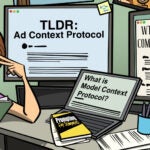 Automotive data company Polk collects and analyzes data related to registration and title information, new vehicle transactions from all the major manufacturers, and even vehicle financing data. Working with companies like Datalogix, with whom Polk has a years-long partnership, the company is able to bring this offline data into the online world.
Automotive data company Polk collects and analyzes data related to registration and title information, new vehicle transactions from all the major manufacturers, and even vehicle financing data. Working with companies like Datalogix, with whom Polk has a years-long partnership, the company is able to bring this offline data into the online world.
“Polk has some model vehicle behaviors on what is likely owned today and what is likely going to be their purchasing behavior,” explained John McBride, digital practice leader at Polk. “Datalogix has created basically a cookie pool where they can help us assign those likely vehicle behaviors to an Internet cookie. We bring the automotive buying behaviors. Datalogix brings in the ability to enable those behaviors…for digital ad targeting.”
McBride spoke with AdExchanger recently about ways manufacturers leverage Polk’s data, the value of automotive data, and Polk’s challenges and goals when it comes to measurement.
AdExchanger: Who are some of your clients, and how do they leverage your data?
JOHN MCBRIDE: All of the manufacturers work with Polk. The main way that we use the data is rolled up above the household at a statistical level, to help manufacturers make decisions about marketing investment, to make decisions in product planning, to help understand what levers to pull to move certain vehicles. Statistically, that data is leveraged mainly by the manufacturers but also by any other industries that are interested in automotive, like insurance or vehicle aftermarket or media, to help them work with the manufacturers.
We also have a direct marketing side of the business, where we do some household direct targeting and direct marketing. We’re able to leverage the title and registration data in a statistical manner to help us build out models in that direct marketing area, as well as some arrangements we have with other third parties that are in that direct marketing space, companies like Epsilon and those guys.
In the mobile industry, for example, they can’t do a lot of targeting down to the individual on the handheld level. We help them understand which regions of the country or which geographies to advertise luxury vehicles to. Where are the best markets to focus your pickup truck messages? We help the advertisers and the marketers identify the hot spots or the right areas to provide their ad exposures.
Who else is in your competitive set, and how do you distinguish yourself?
In the most basic [sense], we’re data providers. We’re data that’s being provided to an automotive marketer to make decisions about which consumers to target. If you think about that, a luxury manufacturer could target income data that’s not even related to automotive. A SUV campaign could be targeted at a household with a certain number of children.
We don’t see a direct automotive competitor, but on a day-to-day basis we’re competing against the other data choices outside of automotive from a targeting perspective to get to that right consumer. I guess the answer would be if there’s a proxy that’s not on automotive that has some impact on the automotive buying behavior, those are the folks that we would be competing against.
How does Polk bring the online and offline together and work on different kinds of cross-channel marketing?
That’s the exact vision that we have over here. The vehicle manufacturers haven’t yet combined their media planning and media buying function to think multi-channel. They’re still siloed around traditional media and digital media. We certainly talk to them about this multi-channel ability and leveraging the Polk data across the different channels.
So then, what are your other goals for the digital business over the next year and a half?
We’re trying to figure out how to best work with these really big players that are starting to monetize or figure out how to monetize their business model: Facebook, Twitter, LinkedIn, Pandora. They have built these amazing platforms with millions and millions of users, and now they’re trying to turn into a revenue-producing asset. How do we best work with those big players as they pursue advertising deals in the automotive industry?
The second component is mobile. Mobile is pretty small from our perspective still, but whenever we’re talking to the manufacturers or talking to their advertising agencies, mobile has become a very important piece. Better understanding of how our data works in mobile and taking advantage of what we learn to extend our presence there [are other] big goals.
And how do you tackle measurement?
We’ve done over 400 or 500 measurement projects over the last year, most with Datalogix. We continue to see that piece of the business growing and expanding. Not just measuring, say, vehicle buy rate of an audience that was exposed, but measuring what’s in their garage currently. What are their loyalty behaviors looking like? Getting more deeply analytical about those audiences to ensure we’re getting to the right one.
We are investing a lot of energy into those capabilities today. In a lot of cases, the manufacturers almost assume that some sort of measurement deliverable is going to be available when they make a big investment in an online or a mobile campaign. It’s almost a point of entry to sell your targeting data…to prove how good that audience is.
Looking at some of the trends that we’re seeing, what are your thoughts about the future of third-party cookies? How does that impact the data marketplace that you’re in right now?
It’s a tough question. We also work in Europe, where it’s a lot different than it is here. It’s hard to understand, as far along as this industry is, that the federal government is going to put restrictions on it. Our sense here is that nothing is going to change significantly in the near term or even the medium term. The complexity of change is so extreme that it seems like it would be hard to get executed. This thing is so far down the road now it’s almost like it’s too late to bail out.











